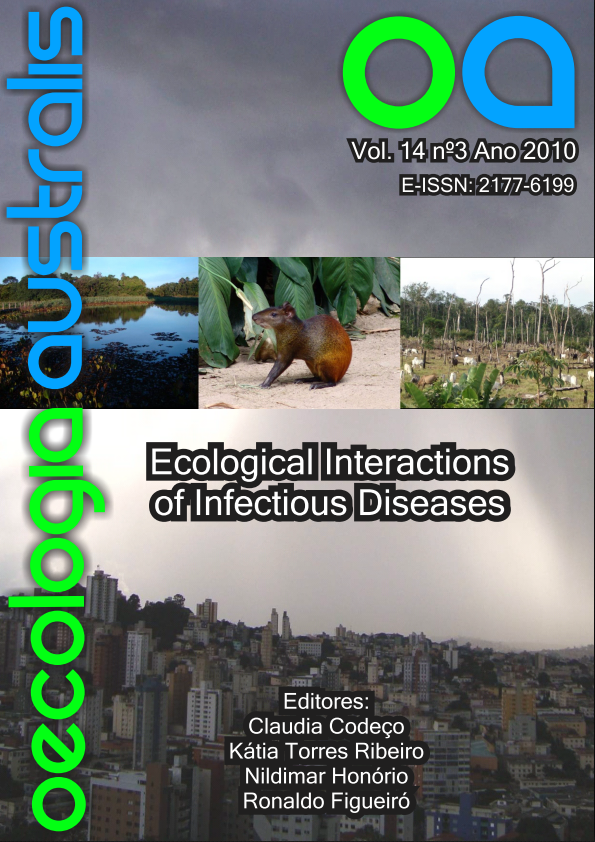EFFECTS OF INFECTIOUS DISEASES AND PARASITES ON HOST POPULATIONS AND NATURAL COMMUNITIES: THE USE OF NON-INDIGENOUS SPECIES (NIS) AS MODELS.
Keywords:
Non-indigenous species, release from parasite, parasite-host dynamics, effects of parasites, emergent diseasesAbstract
The use of mathematical models to study the effects of parasites and infectious diseases on host populations is extremely common and helpful. Indeed, these theoretical models can be seen as tools of ecology and epidemiology and can help in the controlling and prevention of infectious diseases. However, testing the predictions of these models has been very difficult, but some experiments of parasite addition and removal has certainly helped test these theoretical predictions. In this review I explore the possible use of introduced non-indigenous species (NIS) as possible “natural” experiments of parasite removal, since most of them lose their parasites in the process of introduction, as well as parasite addition, in this last case by looking at studies of biological control. These studies indicates that introduced NIS do present lower parasite prevalence and richness, and consequently, have higher population performance than NIS in their native range. This indicates that parasites are able to control host populations. In addition, studies of introduced infectious disease show that the reduction of host abundance can have secondary effects on communities and ecosystems, and that naïve hosts are in danger of being extirpated by introduced pathogens, specially if reservoir hosts are presents. Conversely, host will rarely be extinct, even if immunologically naive, by a parasite, in single host systems, as expected by theoretical models. Lastly, parasites can have key roles in communities when more than one host share the same parasite because of apparent competition.


